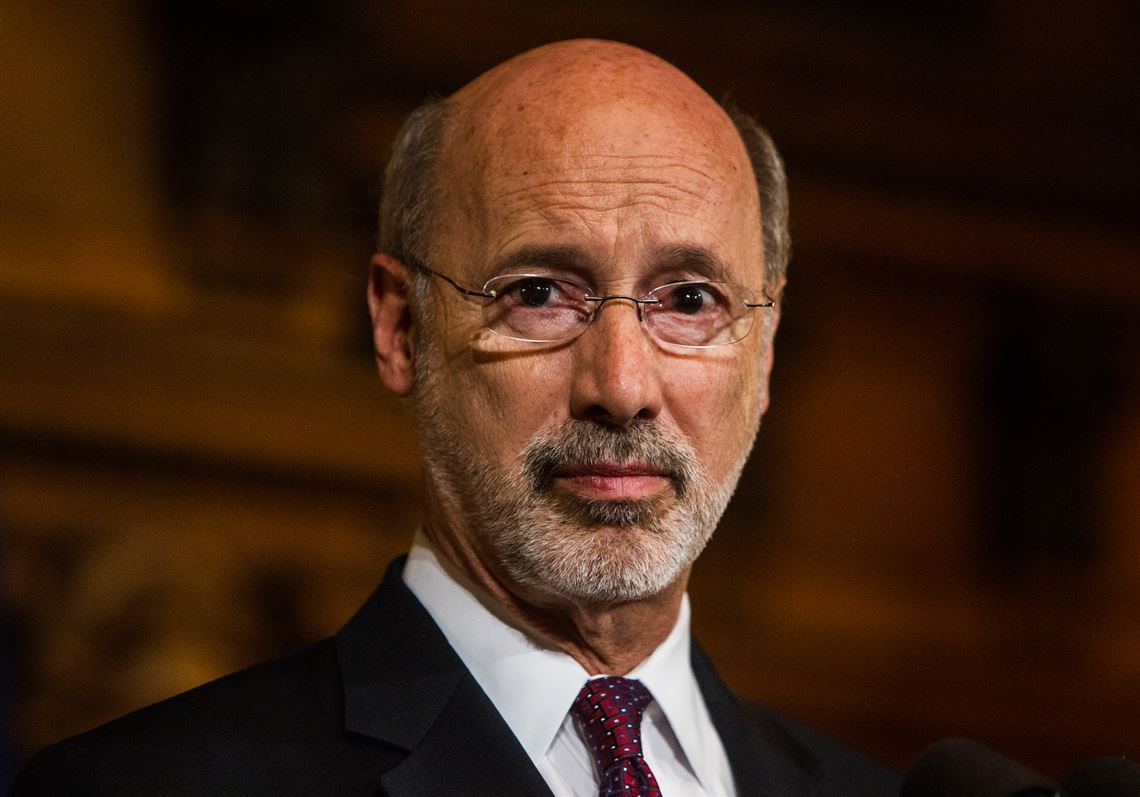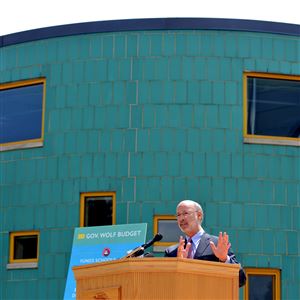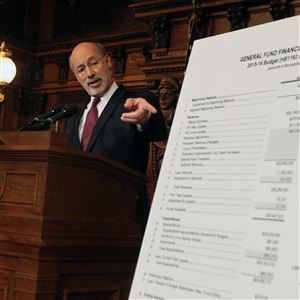Gov. Tom Wolf vetoed a Republican-drafted overhaul of Pennsylvania’s public pensions Thursday, a move that is raising temperatures in what is already becoming — legislatively, at least — a long, hot summer.
The legislation, Senate Bill 1, would have ended the traditional defined-benefit pension for future state and public school workers, instead enrolling them in a 401(k)-style plan. The bill would have applied to the legislators’ own future paychecks, but not to public-safety workers or to existing employees.
Mr. Wolf’s veto follows similar rebukes last week of a Republican budget and liquor privatization plan. Public-sector unions, who were staunch backers of Mr. Wolf’s 2014 election, hailed the move.
“My members have paid their end of the deal,” said David Fillman, executive director of AFSCME Local 13. The pension shortfall, he said, is the fault of elected officials who failed to pay the government’s share into the pension fund. “It’s like not paying the minimum on your credit card bill: It sometimes catches up with you.”
Between them, the pension funds for state employees and teachers may be more than $50 billion short. And teacher pensions are “the giant sucking sound for school budgets,” said John Callahan, senior director of government affairs for the Pennsylvania School Boards Association. Rising pension costs account for the “overwhelming majority” of school tax increases, he said, and passing SB 1 “was an important initiative” to rein in the expense.
In a statement, Mr. Wolf said that SB 1 offered little upfront savings, and that any overhaul should be part of a “comprehensive agreement on the issues facing Pennsylvania,” including a tax on natural gas drilling that he supports but Republicans oppose. The statement also complained that SB 1 was “pushed through without negotiation by Republicans,” who control the Legislature and passed the 400-page bill in less than two months.
Mr. Wolf announced his veto on Pittsburgh radio station KQV early Thursday, where he struck a conciliatory note. He called SB 1 an “example of where I think we’re moving to some common ground. … My veto today is not to say, ‘I’m just throwing it out,’ but ‘let’s get back to work.’ ”
But if he intended those remarks as an olive branch, Republicans reacted to his veto like it was a sharpened stick.
House Speaker Mike Turzai, R-Marshall, blasted Mr. Wolf as “a far-left ideologue who does not know the details on issues.” In a joint statement, Mr. Turzai and other leading Republicans said it was “disingenuous” to say “we are close to a compromise on a pension reform plan, when we only learned [Thursday] morning of the veto via the press.”
The statement also called it “remarkable” that Mr. Wolf, a former York businessman, “would oppose a proposal to move new public employees into a 401(k)-style retirement plan which he, himself, adopted for his employees.”
Wolf spokesman Jeffrey Sheridan called that a “tired” attack. While Mr. Wolf’s business contributed to employees’ retirement “even when the employees did not,” he said, SB 1 “forces newly hired employees to pay down the unfunded liability … caused by years of government failure.”
Some with a stake in the fight have mixed sympathies. Jim Buckheit, executive director of the Pennsylvania Association of School Administrators, said that while his group sought pension overhaul, it also wanted more state funding for education, a priority for Mr. Wolf.
“We’re hopeful that now that the table has been cleared, the governor and legislators can work out a budget and a set of reforms” on those concerns, Mr. Buckheit said.
That may seem unduly optimistic, given Thursday’s rhetoric and the fact that the state is currently operating without a budget.
Mr. Turzai, for one, pledged to “stand strong behind a no-tax-increase budget, and moving into the 21st century with [liquor store privatization] and moving new public-sector employees into a defined-contribution plan.” Mr. Wolf’s office, meanwhile, complained that Republicans “have brought nothing to the table but gamesmanship, rhetoric and an unbalanced budget.”
Still, some observers say a compromise is possible. State Sen. Jay Costa, D-Forest Hills, predicted pension changes would eventually pass alongside liquor overhauls and a budget. But he said it might not be until “folks start to feel some pain” later this summer, when money for state employees runs short, and districts face a new school year without state money they expect from this year’s budget.
“We’ll get through this,” Mr. Costa said. “But some pressure needs to mount.”
Chris Potter: cpotter@post-gazette.com or 412-263-2533.
First Published: July 9, 2015, 1:28 p.m.
Updated: July 10, 2015, 3:30 a.m.



















